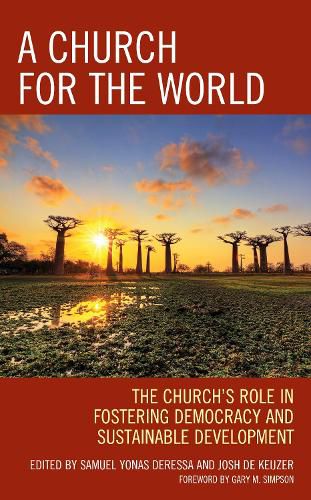Readings Newsletter
Become a Readings Member to make your shopping experience even easier.
Sign in or sign up for free!
You’re not far away from qualifying for FREE standard shipping within Australia
You’ve qualified for FREE standard shipping within Australia
The cart is loading…






A Church for the World: The Church’s Role in Fostering Democracy and Sustainable Development challenges theologians and lay readers alike to think about the role of the church vis-a-vis its responsibility to the world. How may the church contribute to democracy and foster sustainable development? Contributors from mostly non-Western theological communities offer historical, developmental, ecclesiastical, and theological perspectives on the church-world relationship, challenging misconceptions and practices that prevent the church from living up to its transformational vocation as salt and light in the world (Matt. 5:13-16). The driving force behind the questions and perspectives discussed here is Gustavo Gutierrez’s axiom in A Theology of Liberation: A theology which fails to address the most urgent needs of ordinary people is not worthy of the word theology. Proceeding from this insight, this book creates awareness about the relationship between religion, democracy, and development, and aims to strengthen the self-understanding of the church with regard to its responsibilities in the world.
$9.00 standard shipping within Australia
FREE standard shipping within Australia for orders over $100.00
Express & International shipping calculated at checkout
A Church for the World: The Church’s Role in Fostering Democracy and Sustainable Development challenges theologians and lay readers alike to think about the role of the church vis-a-vis its responsibility to the world. How may the church contribute to democracy and foster sustainable development? Contributors from mostly non-Western theological communities offer historical, developmental, ecclesiastical, and theological perspectives on the church-world relationship, challenging misconceptions and practices that prevent the church from living up to its transformational vocation as salt and light in the world (Matt. 5:13-16). The driving force behind the questions and perspectives discussed here is Gustavo Gutierrez’s axiom in A Theology of Liberation: A theology which fails to address the most urgent needs of ordinary people is not worthy of the word theology. Proceeding from this insight, this book creates awareness about the relationship between religion, democracy, and development, and aims to strengthen the self-understanding of the church with regard to its responsibilities in the world.